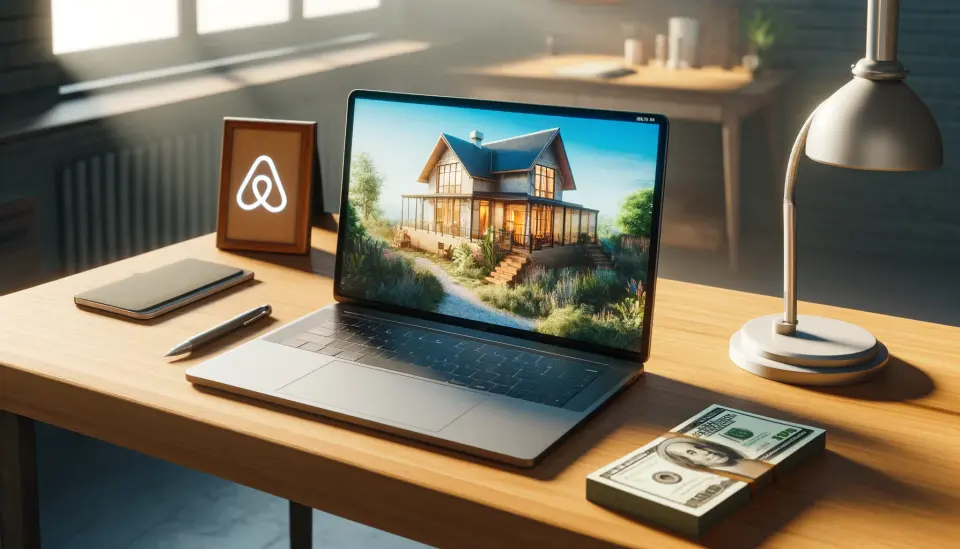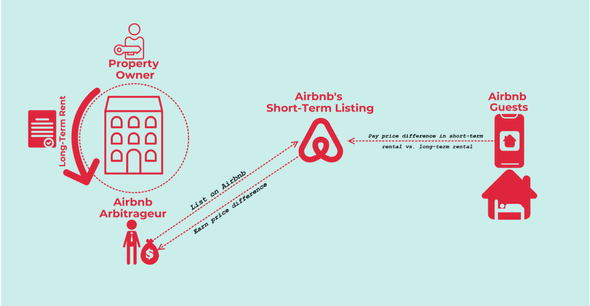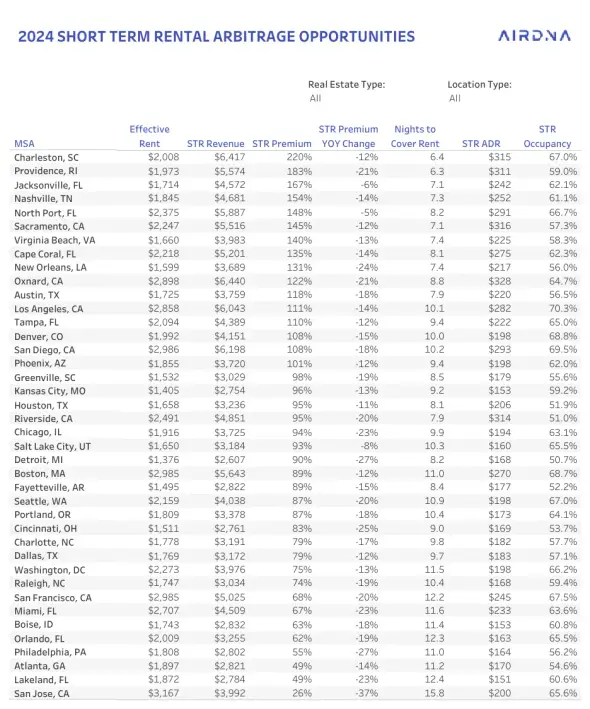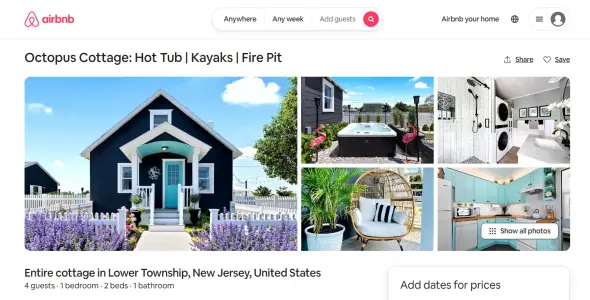How to Make Money on Airbnb without Owning Property

Airbnb has completely changed the game for the vacation rental industry, opening up tons of ways to make money — even if you don’t own property.
Whether you’re a talented organizer, a creative professional or an entrepreneur at heart, there’s a business model within Airbnb to suit your strengths and goals.
From managing vacation rentals and diving into Airbnb rental arbitrage to hosting unique experiences or offering services like photography, the opportunities are endless.
The best part? You can build a successful Airbnb business without dealing with the costs and headaches of owning real estate.
In this blog, we’ll break down eight practical ways to jump into the Airbnb market without owning property. We’ll also share expert tips from industry pros like Kyle Loveland, Managing Partner at Dreamspace and Hostaway’s Solutions Engineer, so you can turn your skills into a thriving business in this booming industry.
Why Earn on Airbnb Without Owning Property?
The short-term rental market is growing exponentially, with the U.S. industry expected to grow from $20.7 billion in 2023 to $24.78 billion by 2029.
This rapid expansion has created numerous opportunities for people to profit in the Airbnb business without the financial burden of owning real estate.
Starting without owning property has its perks. For aspiring entrepreneurs, this means:
No mortgage stress: Skip the financial burden of property ownership.
Low startup costs: Begin your Airbnb journey with minimal investment.
Scalability: Manage or assist with multiple properties to build your portfolio.
Diverse roles: Choose from a range of options, from being an Airbnb photographer to a vacation rental property manager.
If you’re wondering how to become an Airbnb host without owning property, now is the perfect time to explore opportunities.
8 Creative Strategies to Make Money on Airbnb Without Owning Property
1. Airbnb rental arbitrage

Source: https://fourweekmba.com/airbnb-arbitrage-2/
Airbnb rental arbitrage involves renting a property from a landlord and listing it on Airbnb for a higher price. It’s a strategy that lets you play the middleman, earning the difference between long-term rental rates and short-term rental income.
How to get started:
Research
Before diving in, research your local market with tools like AirDNA to get insights into occupancy rates and pricing trends.
As Kyle shared in the — Make Money in Short-Term Rentals Without Owning Property, "Look at occupancy rates and revenue potential in your area. You want to find properties where you can pull in enough on Airbnb to comfortably cover the rent and make a profit."
Convince the landlord
This is where it can get tricky. You need to pitch the idea to the landlord and get them on board with subletting the property.
As Kyle put it, "The hardest part is getting the landlord to agree to let you run the property as an Airbnb. You need to build trust and show them how it benefits both sides."
Setting up
Once approved, set up the property with your target guests in mind. Choose durable furnishings since vacation rentals get a lot of wear and tear.
Then, create an attractive Airbnb listing with high-quality photos to capture attention.
How much can you earn?
The earning potential depends on your location and how well you manage the property. If done right, you can earn up to three times your expenses.
Aim for a property that can make profits of at least $2k per month after all expenses. Top markets for rental arbitrage include Charleston, Providence, Jacksonville and Nashville.

Source: https://www.airdna.co/blog/airbnb-rental-arbitrage
2. Short-term rental property management
If you're great at managing people and logistics, becoming a Airbnb property manager could be a perfect fit.
You’ll work directly with property owners to manage Airbnb properties, ensuring smooth operations and maximizing profits.
Responsibilities of a short-term rental manager
Coordinating check-ins and check-outs
Managing cleaning crews
Handling guest communication
Pricing and revenue management
Overseeing repairs and maintenance
How to start:
Gain experience: Learn the ropes by working with experienced short-term rental managers or taking online courses.
Build a portfolio: Start with one or two properties to showcase your management skills.
Offer competitive rates: Property managers typically earn 10-20% of a property’s revenue.
How much can you earn?
The national average salary for property managers in this niche is $51,904, with bonuses pushing earnings to $60,996, according to Glassdoor. Not bad for managing a few properties, right?
3. Co-hosting Airbnb properties
If you’re not ready to take on full property management responsibilities, co-hosting might be a better fit. Co-hosting is a great entry point into Airbnb market without the full responsibility of being a property manager.
As a co-host, you help the main host run their Airbnb, taking on tasks like communication and cleaning coordination.
What do co-hosts do?
Guest communication: Address questions and provide assistance during stays.
Cleaning coordination: Schedule and oversee cleanings.
Check-ins and check-outs: Facilitate a smooth process for guests.
Reviews: Write reviews for guests and maintain the property’s reputation.
How much can you make?
Co-hosts usually make 10-20% per booking. If you’re managing an Airbnb that brings in $30,000 a year, you could pocket around $3,000-$6,000. By taking on multiple properties, you can scale your income rapidly.
4. Starting an Airbnb cleaning business
.webp?u=https%3A%2F%2Fimages.ctfassets.net%2Fpqmtoyw9z10u%2F4ZPMTYiogmG6zRrfL0bm1X%2F3ac708983bf90b46c3fd1b8c7756b9b8%2FAirbnb_cleaning_business__1_.webp&a=w%3D590%26h%3D337%26fm%3Dwebp%26q%3D75&cd=2024-10-25T20%3A27%3A05.948Z)
If you’re looking for a practical and high-demand service to offer, consider starting an Airbnb cleaning service. Cleaning is one of the most outsourced tasks for Airbnb hosts and the quick turnovers required for short-term rentals allow you to charge premium rates.
Research what local cleaning companies are charging and understand the standards for Airbnb cleaning. Make sure you check for any licensing or insurance requirements in your state.
Once you’ve got everything lined up, focus on delivering top-notch service, because reliability is everything in this business.
As you build a reputation for dependability, you can start scaling your operations to manage multiple properties, unlocking the potential for significantly higher earnings.
How much can you make?
In the U.S., Airbnb cleaners make about $19.79 per hour — that’s 39% more than average cleaning gigs. If you’re self-employed, aim for at least $25 per hour.
Monthly earnings can range from $1,425 to $5,917, depending on how many properties you take on. It can be pretty lucrative if you manage it well.
5. Hosting unique Airbnb Experiences
Do you have a unique skill or hobby you’d love to share? Becoming an Airbnb Experiences host can be a fulfilling way to earn while showcasing your passions.
Airbnb Experiences allow you to offer activities or tours to guests, giving them a chance to connect with the local culture and enjoy something out of the ordinary. From cooking class to guided hikes, the options are endless.
Examples of Airbnb Experiences
Cooking classes: Teach guests how to prepare traditional dishes or specialty cuisines.
Guided nature walks: Highlight scenic trails, wildlife or local landmarks.
Photography tours: Share your expertise while taking guests to the most photogenic spots.
Adventure activities: Offer kayaking, paddleboarding or hiking excursions.
Creative workshops: Lead sessions on pottery, painting or other crafts.
How to get started:
Identify your niche: Think about what makes your area special and what you love to do.
Craft a compelling listing: Use engaging descriptions and professional photos to showcase your experience.
Set fair pricing: Research local rates and ensure your pricing reflects the value of the activity.
Prepare materials: Ensure you have all the necessary supplies and tools to deliver a seamless experience.
How much can you earn?
You can earn between $25 to $150 per guest, depending on the type of experience you offer. Successful Airbnb Experiences hosts in popular markets can make over $20,000 annually, especially if they offer group activities or virtual sessions.
6. Becoming an Airbnb photographer
Professional photos are a must-have for successful Airbnb listings. Kyle even shared how professional photos improved the performance of his property, Octopus Cottage, on Airbnb.

Airbnb photography isn’t just about making a property look good. It’s about capturing what makes it special. By refining this skill, you can attract clients who want to upgrade their listings or add new properties.
So, if you’re skilled with a camera, offering photography services to Airbnb hosts can be a profitable niche.
How to start:
Build a portfolio: Offer free or discounted shoots to showcase your skills.
Market yourself: Use freelance platforms or connect directly with hosts.
Highlight unique features: Focus on what makes each property stand out.
How much can you earn?
Airbnb photographers typically charge anywhere from $25 to $68 per hour and depending on the demand in your area, you could bring in around $50,000 a year.
As Kyle notes, “A good photo can make or break a booking. It’s one of the best investments a host can make.”
7. Join a vacation rental franchise
If you like the idea of running a vacation rental business but don’t want to start from scratch, consider joining a vacation rental franchise. This way, you get the support of an established brand, training and marketing assistance, while you focus on managing properties.
Benefits of a Franchise
Ongoing support: Gain access to professional training and resources.
Established brand: Attract clients through a recognizable name.
Low startup costs: Avoid the expenses of developing a business from scratch.
How much can you earn?
Earnings can vary depending on the franchise and the market, but the potential is high — especially as you expand your portfolio of managed properties.
8. Become an Airbnb Consultant
.webp?u=https%3A%2F%2Fimages.ctfassets.net%2Fpqmtoyw9z10u%2F3urenfrzFIpRJdMbr8i3Bf%2F9cf4b59fb5b844b0d75e28fa887ad1c6%2FAirbnb_Consultant__1_.webp&a=w%3D590%26h%3D337%26fm%3Dwebp%26q%3D75&cd=2024-11-22T01%3A11%3A49.120Z)
If you’ve gained experience managing Airbnb rentals or running a vacation rental business, becoming an Airbnb consultant could be your next step.
As an expert in the short-term rental market, you can guide others to build successful listings, maximize bookings and optimize their business models.
What does an Airbnb consultant do?
As an Airbnb consultant, your role may include:
Helping hosts optimize listings: Improve descriptions, photos and pricing to attract more Airbnb guests.
Increasing visibility: Teach hosts strategies to improve their rankings in search results.
Strategic guidance: Advise on managing properties efficiently or growing a portfolio of rental properties.
Buying and selling rentals: Offer expertise in evaluating or marketing short-term rentals.
How to get started:
Use your experience: If you’ve been a successful Airbnb host or a short-term rental manager, leverage your achievements to showcase your expertise.
Find your niche: Focus on a specific area, like luxury rentals, listing optimization or helping new hosts. Specializing will help you stand out.
Market yourself: Build your personal brand with a professional website, social media presence and client testimonials.
Do the research: Stay updated on Airbnb trends, market research and best practices to offer top-notch advice.
How much can you earn?
Airbnb consultants in the U.S. earn an average of $61,000 per year, but experienced consultants can charge as much as $82.46 per hour — 62% above the national average for similar roles. Your income depends on your expertise and how well you market yourself to potential clients.
Embrace Your Potential
Making money on Airbnb without owning property is not only achievable but also offers immense potential for growth.
Whether you pursue rental arbitrage, become an Airbnb property manager or start a cleaning business, success depends on your ability to adapt and deliver exceptional service.
The key is finding your niche, doing thorough research and executing your plan effectively. As Kyle Loveland advises, “Focus on what you’re good at and double down on your strengths.”
The Airbnb market is growing, and with dedication and the right strategy, you can create a sustainable passive income stream. The best time to start is now!
FAQs
1. Is rental arbitrage legal?
Rental arbitrage is legal in most places, provided you follow local regulations and secure the landlord's approval.
Transparency is key — always ensure that subletting on Airbnb aligns with your lease agreement and local laws. Research thoroughly to avoid any legal complications down the line.
2. How do I convince a landlord to let me sublet their property on Airbnb?
Building trust with the landlord is essential. Be upfront about your plans and highlight the benefits to them, such as consistent rent payments and a well-maintained property.
Consider presenting a written proposal that explains how short-term rentals can add value while ensuring the property remains in excellent condition.
3. Do I need a license to manage short-term rentals?
This depends on your location. In some states or municipalities, a property management or real estate license may be required to manage short-term rentals.
Check your local regulations to ensure compliance and avoid penalties.
4. Is starting an Airbnb cleaning business worth it?
Absolutely! Cleaning is one of the most outsourced tasks in the short-term rental market, offering steady demand and the potential for high earnings.
With reliable service and competitive pricing, you can earn anywhere from $1,425 to $5,917 per month, depending on the number of properties you manage. The business also allows for scalability, giving you room to grow.
5. What are the best markets for rental arbitrage?
Top markets for rental arbitrage include Charleston, Providence, Jacksonville and Nashville. These locations typically have high occupancy rates and significant demand for short-term rentals.
Use tools like AirDNA to analyze the market potential in your area and identify the best opportunities.